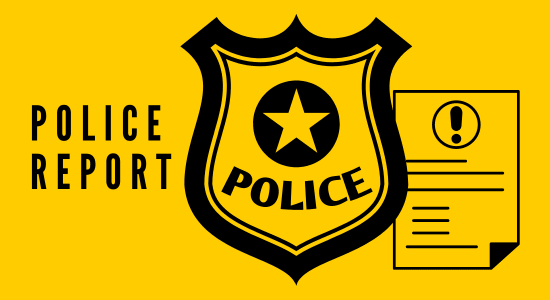Have you ever thought that starting a business with a partner would be the perfect way to achieve your entrepreneurial dreams? But what happens when that partnership sours and your partner runs off with some of the company's money?
It is a financially and emotionally devastating experience. But of course, there are steps you can take to try and recover your losses.
Here's what to do if your business partner steals money, how to prevent it from happening again in the future, and what comes next after such an unfortunate incident.

The Situations
In certain instances, a business partner may abscond with funds, leaving the other party in a financially compromised position. Here are some examples of such situations:
- In a joint venture, one collaborator unexpectedly disappears, taking a substantial sum of money allocated for project expenses.
- Following a successful fundraising campaign, a partner misappropriates a significant portion of the proceeds, leaving the organization in a dire financial state.
- After securing a lucrative contract, a co-owner embezzles a considerable amount of the earnings, causing severe financial distress to the company.
- During the sale of a business, one of the partners diverts a substantial sum from the acquisition funds into a personal account, negatively impacting the other stakeholders.
- In a startup partnership, a key team member vanishes with a significant investment, endangering the company's ability to meet its financial obligations.
What to Do if Your Business Partner Steals Money
Discovering that your business partner has stolen money can be a shocking and devastating experience. Here are the steps you can take.
1. Gather evidence:
Collect all the evidence you have, such as financial records, bank statements, receipts, contracts or any other documents related to your partnership. Here are the steps you can take to gather evidence:
- Document all financial transactions: Collect and organize financial records, including invoices, receipts, bank statements, and any other relevant documents that show the flow of money within the business.
- Review accounting records: Carefully examine the company's accounting records, including ledgers, profit and loss statements, and balance sheets. Look for discrepancies or irregularities that indicate fraudulent activities.
- Seek professional help: Engage the services of a forensic accountant or financial investigator who specializes in uncovering financial fraud. They can help analyze the financial data, identify any missing funds, and provide expert opinions.
- Interview witnesses: Identify and interview employees, clients, or other relevant individuals who may have observed suspicious activities or have information that could support your case. Their statements can serve as valuable evidence.
- Collect digital evidence: Electronic evidence plays a crucial role. Secure any relevant electronic data, such as emails, text messages, or other communications that indicate the fraudulent actions or intentions of your business partner.
- Preserve surveillance footage: If your business has security cameras, review the footage to identify any suspicious behavior or transactions involving your partner. Preserve the relevant video recordings as evidence.

2. Consult an attorney:
If your business partner has definitely stolen money, then consulting an attorney is strongly recommended. An attorney who specializes in business or commercial law can provide you with essential legal guidance and support throughout the process. They can help you understand your rights, assess your options, and develop a strategy to address the situation effectively.
An attorney will be able to review the evidence you have gathered, advise you on the strength of your case, and help determine the best course of action. They can also assist in navigating the legal procedures involved, such as filing a lawsuit or initiating alternative dispute resolution methods like mediation or arbitration.
Having an attorney by your side can significantly enhance your chances of recovering the stolen funds or seeking appropriate legal remedies. They will advocate for your interests, protect your rights, and help you pursue justice in the most appropriate and effective manner.
Keep in mind that laws and legal procedures may vary depending on your jurisdiction, so it's crucial to consult an attorney who is familiar with the laws in your specific jurisdiction.
3. Confront your partner or not?
Think about whether to meet with your partner face-to-face and present them with the evidence you have collected very carefully. Because it will give them a chance to explain their actions before taking any further steps.
Having said that, confronting them directly is a risky step, especially if your attorney has already started handling the situation. It is generally advisable to follow the guidance of your attorney before taking any direct action.
Here are a few reasons why it may be wise to let your attorney handle the communication instead of confronting your partner face to face:
- Legal strategy: Your attorney can help develop a strategic plan for addressing the issue, which may involve preserving evidence, documenting the theft, and building a strong case. They can guide you on the best approach to maximize your chances of recovering the stolen funds or achieving a favorable resolution.
- Emotional detachment: Emotions can run high in such situations, and direct confrontations may escalate tensions or lead to unproductive arguments. By having your attorney handle the communication, you can maintain a more objective and professional stance, focusing on legal remedies rather than engaging in potentially heated confrontations.
- Protecting your rights: Your attorney can ensure that your rights are protected throughout the process. They have the legal knowledge and expertise to navigate complex legal matters and negotiate on your behalf, which can help prevent any unintended consequences or further harm to your interests.
- Preserving evidence: Your attorney can advise you on how to gather and preserve evidence in a manner that adheres to legal standards. Direct confrontations may not provide an opportunity to collect evidence properly, and your attorney can guide you on the best practices for gathering evidence and presenting it in court, if necessary.
While it is essential to address the issue with your business partner, doing so through your attorney's guidance can help protect your legal interests and increase the likelihood of achieving a positive outcome. Always consult with your attorney before taking any direct action or engaging in face-to-face confrontations.
4. File a police report:

If necessary, file a police report against your partner for theft or embezzlement of funds. Here are the factors to determine whether to report to the police:
- Legal documentation: Filing a police report creates an official record of the theft. This documentation can be vital if you decide to pursue legal action against your business partner or if you need to provide evidence of the crime to other parties, such as insurance companies or financial institutions.
- Law enforcement involvement: In cases of theft or embezzlement, law enforcement agencies have the authority and resources to conduct investigations. By filing a police report, you initiate the involvement of the appropriate authorities who can investigate the matter further and potentially press charges against your partner.
- Protection for future incidents: Reporting the theft to the police helps protect other potential victims. If your partner has engaged in fraudulent activities before or has a history of similar behavior, your report can contribute to a pattern of evidence that can assist in preventing future incidents and holding the individual accountable.
- Insurance claims or recovery efforts: If your business has insurance coverage or if you plan to pursue civil remedies, such as restitution or recovery of the stolen funds, a police report can support your case. Insurance companies and civil courts often require a police report to validate your claim and demonstrate that a crime has taken place.
However, it is important to consult with your attorney before filing a police report. They can provide guidance specific to your situation, evaluate the legal implications, and advise you on the best course of action based on the evidence and circumstances involved.
5. Consider mediation/arbitration
If there is still a possibility of salvaging the partnership despite the theft, seeking help from a mediator or arbitrator can be a viable option to resolve the disputes between partners. Here's why considering mediation or arbitration can be beneficial:
- Facilitating communication: A mediator or arbitrator can create a structured and neutral environment for partners to engage in open and constructive dialogue. They can help facilitate communication, ensuring that each party's concerns are heard and understood.
- Preserving the partnership: Mediation or arbitration allows partners to explore potential solutions and find common ground. By working through the issues with the assistance of a neutral third party, there is a chance of finding resolutions that can salvage the partnership or at least reach a mutually agreeable settlement.
- Confidentiality: Mediation and arbitration processes often prioritize confidentiality. This can provide a safe space for discussing sensitive matters, allowing the partners to be more open and willing to find compromises without concerns about public exposure.
- Cost and time efficiency: Mediation or arbitration can be more cost-effective and time-efficient compared to lengthy legal proceedings. It can help the parties reach a resolution faster, saving both time and resources.
- Customized solutions: Mediation and arbitration allow for flexibility in finding solutions. The mediator or arbitrator can help the parties craft agreements tailored to their specific needs and circumstances, considering the stolen funds and the overall business dynamics.
When considering mediation or arbitration, it is essential to select a qualified and impartial mediator or arbitrator who specializes in business disputes. They can guide the process, ensure fairness, and help facilitate a resolution that is acceptable to all parties involved.
How to Prevent It From Happening
Preventing your business partner from running off with business money or disputing can be challenging, but taking certain precautions can help mitigate the risks. Here are the steps to take to safeguard your interests:
Step 1: Clear and comprehensive partnership agreement
Draft a well-defined partnership agreement that outlines the roles, responsibilities, and financial obligations of each partner. Include provisions related to the management of funds, profit distribution, dispute resolution, and partner withdrawal or termination. Clearly define the consequences of breaching the agreement.
Step 2: Regular communication and transparency
Maintain open and transparent communication with your partner. Regularly discuss financial matters, share important information, and review financial reports together. Transparency can help build trust and minimize misunderstandings or suspicions.
Step 3: Establish financial controls
Implement robust financial controls and systems to monitor and track business finances. This may include requiring dual signatures on checks or approvals for significant financial transactions, implementing regular financial reporting and reviews, and conducting periodic audits.
Step 4: Segregate financial duties
Divide financial responsibilities among partners to create checks and balances. Assign different individuals to handle financial tasks such as bookkeeping, invoicing, and banking. This segregation of duties helps prevent one partner from having excessive control over financial transactions.
Step 5: Monitor accounts and transactions
Regularly review bank statements, financial reports, and transaction records. Keep a close eye on incoming and outgoing funds, ensuring they align with the business's operations and objectives. Promptly investigate and address any discrepancies or unusual activities.
Step 6: Implement strong internal controls
Enforce strict internal controls to protect against unauthorized access or misuse of funds. This includes password protection, limited access to financial systems or accounts, and secure handling of sensitive financial information.
Step 7: Maintain proper documentation
Keep detailed records of financial transactions, contracts, agreements, and any changes to the partnership structure. Maintaining comprehensive documentation can be crucial in resolving disputes and providing evidence if legal action becomes necessary.
Step 8: Regularly review and update the partnership agreement
Periodically review and update the partnership agreement to ensure it reflects any changes in business operations, financial arrangements, or partner roles. Regularly consulting with an attorney can help ensure your agreement remains legally sound and up to date.
Step 9: Seek legal advice when necessary
Consult with an attorney who specializes in business law whenever you encounter significant disputes or concerns regarding your partner's behavior. Legal guidance can help you understand your rights and options, and assist you in taking appropriate action to protect your interests.
While these measures can help reduce the risk of your partner running off with money or disputing, there is no foolproof guarantee. Vigilance, open communication, and proactive measures are key to maintaining a healthy and secure business partnership.
Conclusion - Don't Let The Experience Let You Down
To prevent this experience from letting you down in the future and to maintain your motivation in business:
- Reframe the experience: Instead of dwelling on the negative aspects, reframe the situation as a learning opportunity. Focus on the lessons you've gained and how you can use them to make smarter decisions moving forward.
- Embrace resilience: Recognize that setbacks are a part of entrepreneurship. Cultivate resilience by acknowledging your ability to overcome challenges and bounce back stronger. Remind yourself of past successes and your determination to succeed.
- Surround yourself with support: Build a strong support system of mentors, friends, and fellow entrepreneurs who can provide encouragement and guidance. Lean on them during tough times to stay motivated and gain different perspectives.
- Set realistic goals: Set clear, achievable goals for your business. Break them down into smaller milestones, celebrating each accomplishment along the way. This will keep you focused and motivated, preventing the overwhelming feeling of giving up.
- Continuously learn and adapt: Stay curious and committed to learning. Stay updated on industry trends, seek out new knowledge, and be willing to adapt your strategies. This proactive approach will help you navigate challenges and stay ahead of the game.
- Practice self-care: Take breaks, engage in activities you enjoy, and establish a healthy work-life balance. Nurturing yourself will keep you energized and motivated for the long run.
- Visualize success: Create a clear vision of what success looks like for your business. Visualize it regularly, allowing yourself to feel the excitement and fulfillment it brings. This visualization can serve as a powerful motivator during challenging times.
- Celebrate small wins: Acknowledge and celebrate even the smallest achievements. Recognizing your progress fuels motivation and keeps your spirits high, encouraging you to keep going.
- Seek inspiration: Surround yourself with inspirational stories of entrepreneurs who have faced similar challenges and triumphed. Their experiences can provide you with motivation, ideas, and renewed determination.
- Maintain a growth mindset: Embrace a growth mindset that views failures as learning opportunities. See setbacks as temporary and focus on continuous improvement. By adopting this mindset, you'll approach challenges with resilience and perseverance.
Setbacks are common in business, but they don't define your future success. Stay determined, learn from the experience, and leverage it as fuel to drive your passion and determination to succeed.
